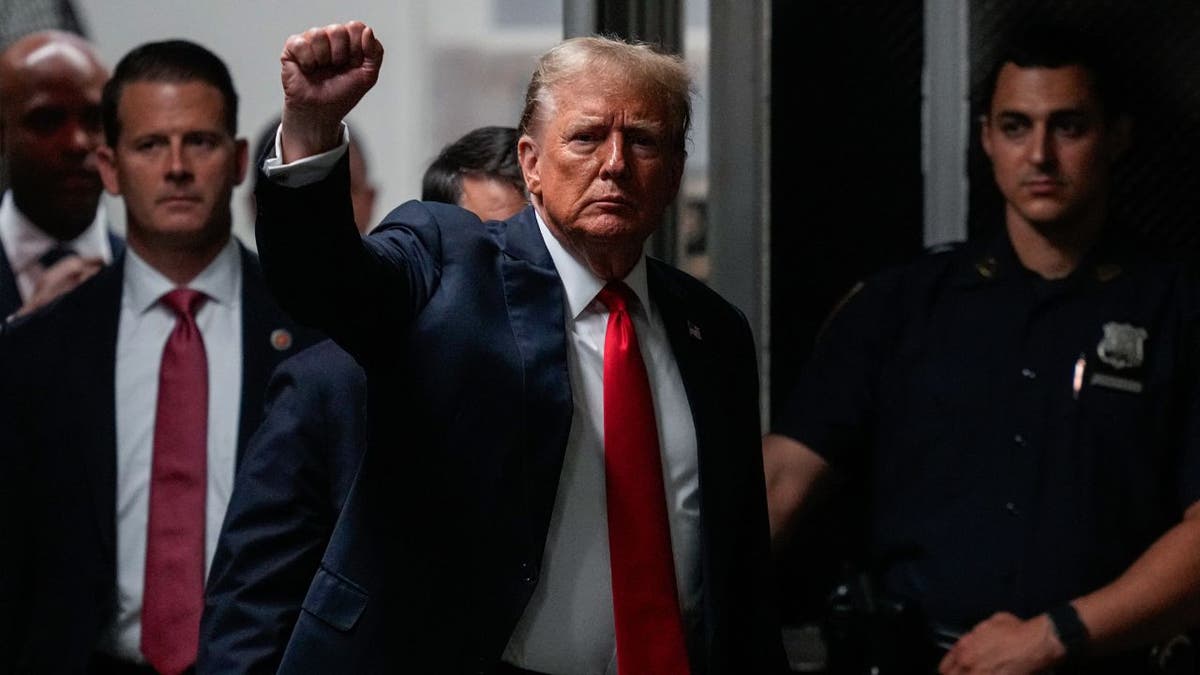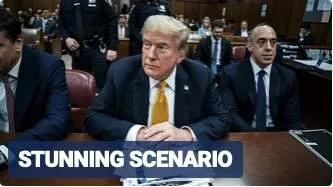(Fox News) A Manhattan jury began deliberations Wednesday in former President Trump’s New York criminal trial.
A guilty verdict in the historic case could have far-reaching consequences for the 2024 presidential election and upend criminal case law in New York, while a not guilty verdict would give Trump ammunition in a potential lawsuit for malicious prosecution, legal experts told Fox News Digital.
“It seems this is an all-or-nothing case, assuming arguendo there is a verdict and not a hung jury,” said Trey Gowdy, “Sunday Night in America” host and a former federal prosecutor.
Manhattan District Attorney Alvin Bragg indicted Trump on 34 felony counts of falsifying business records in the first degree. Trump has pleaded not guilty to all counts.
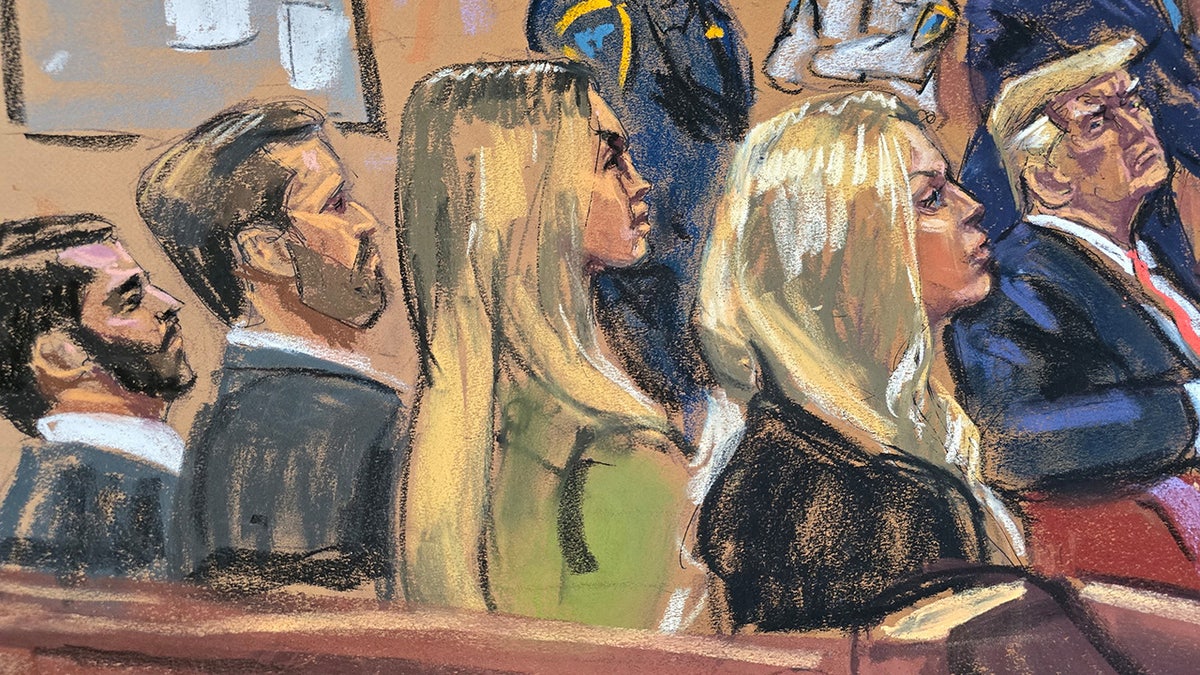
In this courtroom sketch, former President Trump’s children — Tiffany Trump, Donald Trump Jr. and Eric Trump with his wife Lara — sit next to Trump in a front row as defense lawyer Todd Blanche presents closing arguments during Trump’s criminal trial on charges he falsified business records to conceal money paid to silence porn star Stormy Daniels in 2016 in Manhattan Criminal Court in New York City on Tuesday. (Reuters/Jane Rosenberg )
Gowdy, who has been in the New York City courtroom where Trump’s case will be decided, said it was unlikely for the jury to find Trump guilty on some charges but not others.
“I cannot foresee a verdict with some counts as guilty and others as not. Unless there is a lesser included misdemeanor charge, in which case there perhaps could be a series of convictions for felony and misdemeanor counts,” he said.
Louis Gelormino, a Staten Island defense attorney, agreed that the jury would render the same verdict on all counts “because all the felonies are pretty much the same.”
“They’re just different instances of the same felony,” he told Fox News Digital.
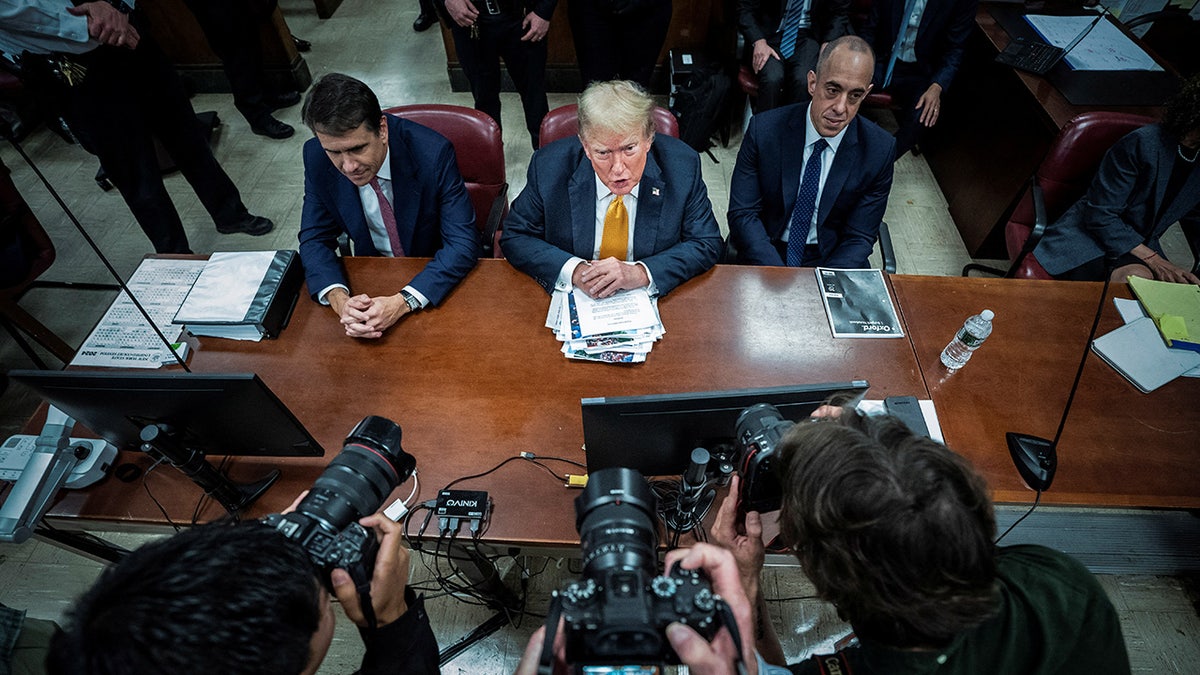
Former President Trump, flanked by attorneys Todd Blanche and Emil Bove, arrives for his criminal trial at Manhattan Criminal Court in New York City on Wednesday. (Jabin Botsford/Pool via Reuters)
The charges against Trump in New York are related to alleged payments made ahead of the 2016 presidential election to silence adult film star Stormy Daniels about an alleged 2006 extramarital sexual encounter with Trump.
Prosecutors must convince the jury that not only did Trump falsify the business records related to alleged hush money payments, but that he did so in furtherance of another crime, conspiracy to promote or prevent an election. Bragg’s allegation that Trump falsified records to cover up an additional crime elevated to a felony what otherwise would have been misdemeanor charges.
Gelormino said that in 45 years of practicing criminal law in New York, he and his law partner have never seen a case like this.
“This is the most absurd, obscene case we’ve ever seen anybody try to get convicted of. And for this to be a case against the former president of the United States puts it way over the top,” he said. “Any citizen, anybody, should never be charged with these kind of crimes.”
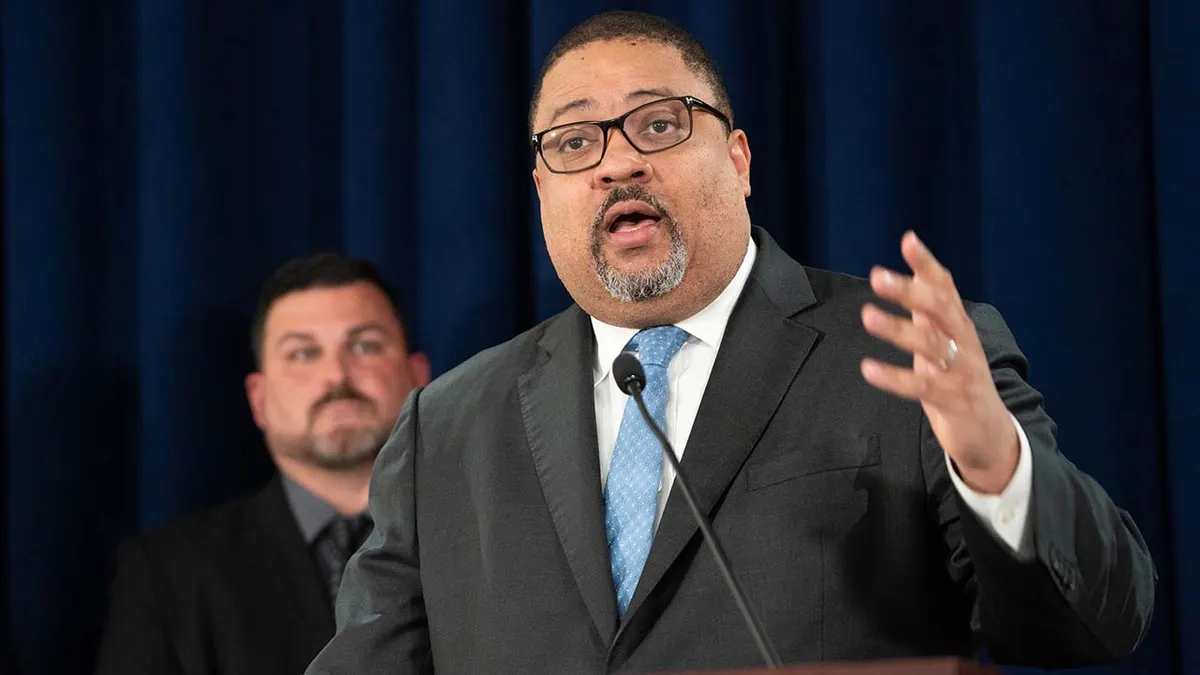
Manhattan District Attorney Alvin Bragg speaks during a news conference in New York City on March 7. (Barry Williams/New York Daily News/Tribune News Service via Getty Images)
If Trump is convicted, he would still be able to run for president. But what that looks like will vary greatly depending on his sentence. An appeal could take months or even years to resolve. And an appellate court would decide whether to stay any sentence or conditions pending an appeal.
Prosecutors will have the option of requesting that presiding Judge Juan Merchan increase Trump’s bail to guarantee his return for the sentencing hearing. This could also include a request for remand, which would place Trump in jail until his sentencing hearing. But legal experts say it is unlikely for a 77-year-old man who has never been convicted of a crime to be sent to jail.
Gelormino explained that before sentencing, the former president would have to meet with a probation officer for an interview to create a pre-sentencing report for the judge. The report, which can take six to eight weeks to complete, would include a short biography of Trump and a recommended sentence. It would be sent to all parties, and the defense would have an opportunity to suggest its own sentencing terms. Merchan would not be bound by the sentencing report.
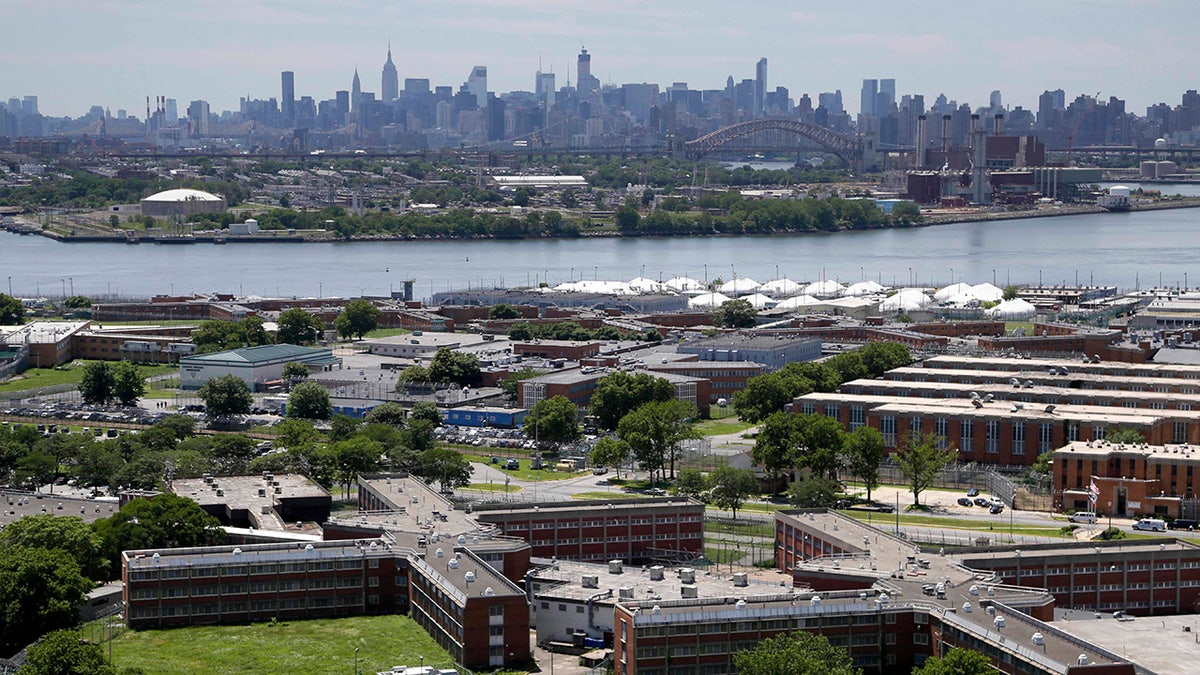
The Rikers Island jail complex stands with the Manhattan skyline in the background in New York on June 20, 2014. (AP Photo/Seth Wenig, File)
Probation offices are located throughout New York City, but Gelormino guessed that authorities would make special arrangements for Trump so that a former president is not waiting for hours in a lobby with other convicts. Trump, like any other convict, would have to abide by certain rules as he awaits sentencing, including that he must admit guilt to the probation officer.
“When my clients have to meet with a probation officer, what the judges will tell you is you have to do three things. You have to stay out of trouble. You have to not get rearrested. And you have to tell the truth to the probation officer,” Gelormino said. “Meaning, they ask you about the incident, and every one of my clients that goes in there, I always tell them, ‘Just say to the probation officer you agree to what’s on the record because you have to admit guilt.'”
If a convict found guilty by a jury of his peers does not admit guilt to the probation officer, Gelormino said, the judge will take that into account as an “aggravating factor” in sentencing.
